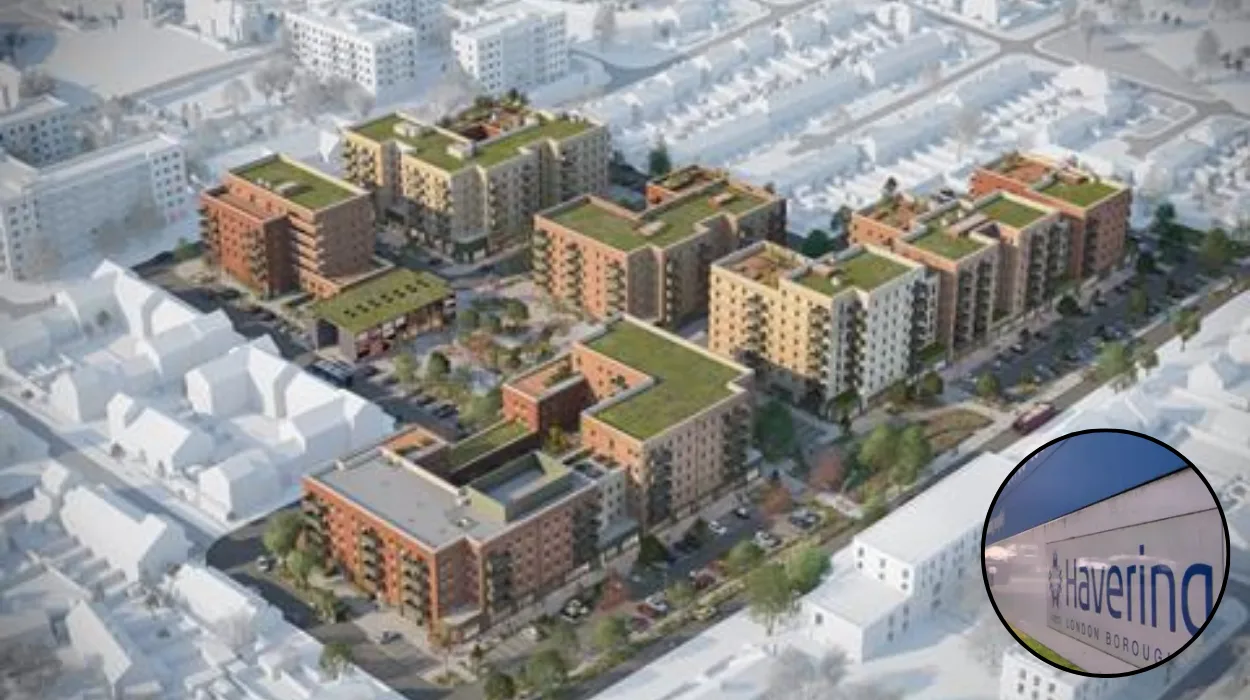Key Points
- Havering Council has raised concerns that the Mayor of London’s new London Plan may jeopardise the borough’s own housing delivery targets.
- The Council claims the Plan’s rigid targets and policies could limit local flexibility and hinder regeneration projects.
- Havering’s leadership has called for greater autonomy in planning decisions to better reflect local needs and circumstances.
- The East London Plan sets ambitious housing targets for all boroughs, including Havering, as part of the capital’s wider development strategy.
- The Council is seeking constructive dialogue with City Hall to address these concerns and ensure local priorities are not overlooked.
- Statements from both Havering Council and the Mayor’s office highlight the ongoing debate over balancing city-wide planning with borough-level autonomy.
Havering Council has issued a formal warning that the Mayor of London’s latest London Plan may undermine the borough’s ability to meet its own housing objectives, citing concerns over inflexible targets and a lack of consideration for local circumstances. The Council is urging for more autonomy and a collaborative approach to ensure the borough’s regeneration and housing projects are not compromised.
- Key Points
- What Are Havering Council’s Main Concerns About the London Plan?
- How Does the London Plan Affect Havering’s Housing Targets?
- What Statements Have Been Made by Havering Council and the Mayor’s Office?
- Why Is Local Autonomy Important for Havering’s Housing Plans?
- What Are the Broader Implications for London’s Housing Strategy?
- How Is the Issue Being Addressed Moving Forward?
- What Is the Public and Political Reaction?
- What Happens Next?
What Are Havering Council’s Main Concerns About the London Plan?
As reported by Geo News, Havering Council officials have expressed apprehension that the new London Plan, introduced by the Mayor of London, imposes rigid housing targets and planning policies that may not align with the borough’s unique needs and regeneration ambitions. The Council argues that these city-wide targets could restrict their ability to tailor housing delivery to local conditions and priorities.
A spokesperson for Havering Council stated, “While we support the need for increased housing across London, the current Plan does not adequately reflect the specific challenges and opportunities within our borough. We are concerned that inflexible targets could hinder our regeneration projects and limit our capacity to deliver the right homes in the right places.”
How Does the London Plan Affect Havering’s Housing Targets?
According to coverage from Leverage Edu, the London Plan sets ambitious housing targets for all London boroughs, including Havering, as part of a broader strategy to address the capital’s housing shortage. The Plan outlines the number of new homes each borough is expected to deliver over a set period, with the intention of ensuring a coordinated approach to development across London.
However, Havering Council contends that these targets do not sufficiently account for local constraints such as infrastructure capacity, land availability, and community needs. The Council maintains that a “one-size-fits-all” approach could undermine ongoing regeneration schemes and the delivery of affordable housing tailored to local residents.
What Statements Have Been Made by Havering Council and the Mayor’s Office?
As reported by Geo News, Havering Council leader, Councillor Damian White, emphasised the need for local flexibility, stating, “We urge the Mayor to recognise the importance of local knowledge and to work with us to develop a plan that supports both London’s and Havering’s housing ambitions”.
In response, a spokesperson for the Mayor of London’s office asserted, “The London Plan is designed to ensure that all boroughs contribute to meeting the capital’s housing needs. We are committed to working with local authorities to address their concerns and to deliver homes for all Londoners.”
Why Is Local Autonomy Important for Havering’s Housing Plans?
Havering Council argues that greater autonomy in planning decisions would enable the borough to respond more effectively to local challenges and opportunities. The Council points to its track record of successful regeneration projects and community engagement as evidence that local leadership can deliver positive outcomes when given the flexibility to do so.
The Council’s planning team noted, “Our regeneration schemes have already delivered significant benefits for residents, including new homes, improved infrastructure, and enhanced public spaces. We believe that local decision-making is key to building on this success and meeting the needs of our growing population.”
What Are the Broader Implications for London’s Housing Strategy?
The debate between Havering Council and City Hall highlights a wider issue in London’s housing strategy: the balance between city-wide coordination and local autonomy. While the Mayor’s office argues that uniform targets are necessary to address the capital’s housing crisis, boroughs like Havering contend that flexibility is needed to reflect diverse local circumstances.
As reported by Leverage Edu, this tension is not unique to Havering, with several other boroughs also raising concerns about the impact of the London Plan on their ability to deliver housing and regeneration projects. The outcome of this debate could have significant implications for the future of planning and development across London.
How Is the Issue Being Addressed Moving Forward?
Both Havering Council and the Mayor’s office have indicated a willingness to engage in constructive dialogue to resolve these issues. The Council has called for a review of the London Plan’s housing targets and policies to ensure they are flexible enough to accommodate local needs.
A joint statement from both parties emphasised the importance of collaboration: “We are committed to working together to find solutions that support both the capital’s housing ambitions and the unique needs of individual boroughs.”
What Is the Public and Political Reaction?
The issue has sparked debate among local residents, councillors, and housing campaigners. Some community groups have voiced support for Havering Council’s stance, arguing that local knowledge is essential for effective planning. Others, however, stress the need for ambitious city-wide targets to tackle London’s housing crisis.
Political analysts note that the outcome of this dispute could set a precedent for how planning powers are shared between City Hall and London’s boroughs in the future.
What Happens Next?
Havering Council has formally requested further discussions with the Mayor’s office and is seeking assurances that its concerns will be addressed in future revisions of the London Plan. Both parties have agreed to continue working together to ensure that housing delivery in Havering supports local aspirations while contributing to London’s broader development goals.
The situation remains under review, with stakeholders across the capital watching closely to see how the balance between city-wide strategy and local autonomy will be managed in the coming months



